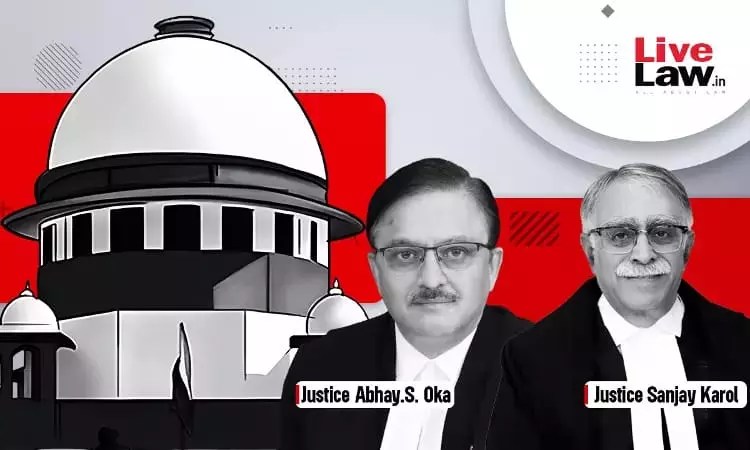Tribunal Cannot Direct Framing Of Policy By Government: Supreme Court Sets Aside AFT Direction On JAG
Sheryl Sebastian
15 Dec 2023 9:45 PM IST

Next Story
15 Dec 2023 9:45 PM IST
The Supreme Court on Thursday (14.12.2023) held that a Tribunal subject to the High Court's jurisdiction under Article 226, cannot be permitted by law, to direct the framing of a policy by the Government. A bench of Justice Abhay S Oka and Justice Sanjay Karol was considering whether the Armed Forces Tribunal (AFT) could have issued a direction to the Government to frame a policy for filling...
